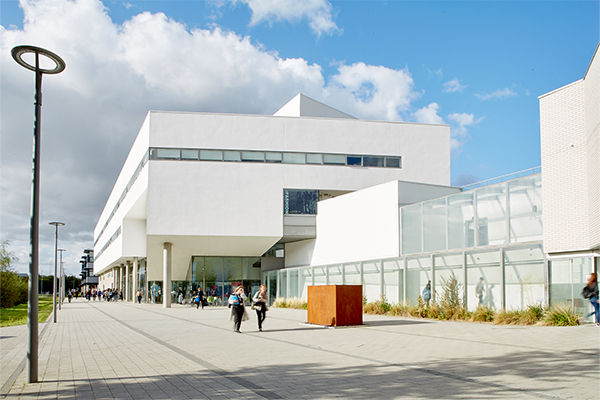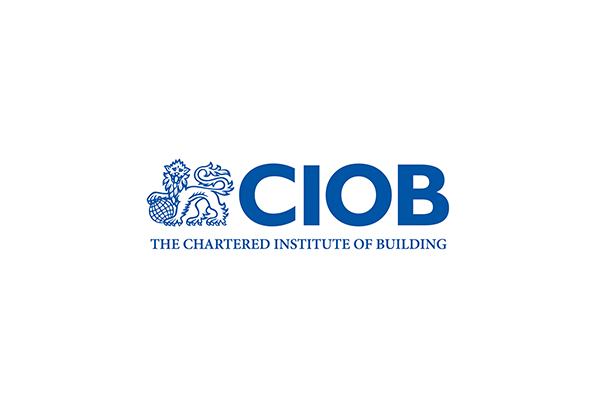Why Choose Lincoln
course is accredited by the Chartered Institute of Building
Opportunities for interdisciplinary working
Links to industry
Complete a research project in a specialist area

Lincoln's MSc Construction Science and Management responds to the global challenges that built environments face: changes in climate, technology, urbanisation, population dynamics, and governance. These challenges require innovative leadership from built environment professionals in order to adapt appropriately.
This Chartered Institute of Building accredited programme is designed to further develop students' knowledge and understanding of the science of buildings, and the management of the construction process in order to fulfil their professional duties in creating, improving, and sustaining the built environment. It provides a holistic perspective of construction management processes and the global challenges facing the modern construction industry.
Recent graduates from construction and other related disciplines may find this programme beneficial to develop their technical knowledge and the management skills required for a fast-track career in the construction industry. It is also suited to experienced construction professionals who aspire to senior management positions in the UK and overseas. It can also open up opportunities to progress to MPhil/PhD research studies in the fields of construction science, construction technology, and construction management.
The programme is designed around the Chartered Institute of Building (CIOB) Education Framework, and the curriculum has been developed in collaboration with industry partners. The programme content is informed by state-of-the-art research carried out by academics across the Lincoln School of Architecture and the Built Environment. This includes research on latest trends in lean and sustainable construction. The programme is offered as a one-year full-time modular course or two-year flexible modular course.
course is accredited by the Chartered Institute of Building
Opportunities for interdisciplinary working
Links to industry
Complete a research project in a specialist area

Through a combination of lectures, seminars, tutorials, practical exercises, site visits, field trips, and workshops with industry experts, this course aims to prepare students for a broad range of career paths within the construction sector.
Students can benefit from our research-active team of academic staff within the school, who have well-established links to industry through their research contributions and previous work experience.
The structure of the course will comprise a number of modules covering the subject areas required by the CIOB.
The course will also include a Research Methods and Master's dissertation module, an essential research element of the curriculum. Specialist research training will be delivered to help students develop their research skills and prepare their research proposal for a substantial written research project dissertation in any area relating to construction science and management.
Interdisciplinary Structure
The Lincoln School of Architecture and the Built Environment is proud of its interdisciplinary structure and students in Construction Science and Management are likely to be working alongside postgraduate students from other disciplines, particularly architecture. We are proud of our construction industry connections which enable us to provide students with opportunities for construction site visits, and the potential for work placements and graduate employment.
Contact Hours and Independent Study
Weekly contact hours on this programme vary depending on the module being delivered and the stage of study. Postgraduate-level study involves a significant proportion of independent study, exploring the material covered in lectures and seminars. As a general guide, for every hour spent in class, students are expected to spend at least two to three hours in independent study. For more detailed information please contact the Programme Leader.
This course is accredited by the Chartered Institute of Building (CIOB), and the University of Lincoln has CIOB Accredited Centre Status.

† Some courses may offer optional modules. The availability of optional modules may vary from year to year and will be subject to minimum student numbers being achieved. This means that the availability of specific optional modules cannot be guaranteed. Optional module selection may also be affected by staff availability.
We want you to have all the information you need to make an informed decision on where and what you want to study. In addition to the information provided on this course page, our What You Need to Know page offers explanations on key topics including programme validation/revalidation, additional costs, contact hours, and our return to face-to-face teaching.
The School engages in industry-based research, including a study undertaken by Professor Stephen Pretlove and Dr Saad Sarhan exploring ways to improve stress management and productivity in construction projects. The team also collaborated as joint editors of a special edition of the renowned journal Construction Economics and Building, which focused on future directions for lean and sustainable construction.

There are a variety of different assessment methods adopted across this programme and this will vary for each module. The methods can include:
- Assignments
- Critical reviews
- Essays
- Formal examinations
- Practical exercises
- Presentations
- Technical reports.
The variety of assessment methods is designed to enable the further development of many skills required by professionals in the modern construction industry, including those in communication, leadership, team-work, critical reflection, and creative problem-solving.
Assessment Feedback
The University of Lincoln's policy on assessment feedback aims to ensure that academics will return in-course assessments to students promptly - usually within 15 working days of the submission date.
I'm pleased to be a student at this internationally acclaimed University with quality staff and facilities. I’m enjoying this well-structured course, which focuses on improving the skills and knowledge for those looking for management roles in the construction industry.
Judith Eze
Postgraduate Application Support
Applying for a postgraduate programme at Lincoln is easy. Find out more about the application process and what you'll need to complete on our How to Apply page. Here, you'll also be able to find out more about the entry requirements we accept and how to contact us for dedicated support during the process.
How to Apply
First or second class honours degree in a relevant subject and preferably experience in practice. Applicants with significant industrial experience will be considered and invited to attend an interview.
If you have studied outside of the UK, and are unsure whether your qualification meets the above requirements, please visit our country pages https://www.lincoln.ac.uk/home/studywithus/internationalstudents/entryrequirementsandyourcountry/ for information on equivalent qualifications.
Overseas students will be required to demonstrate English language proficiency equivalent to IELTS 6.5 overall, with a minimum of 6 in each element. For information regarding other English language qualifications we accept, please visit the English Requirements page https://www.lincoln.ac.uk/home/studywithus/internationalstudents/englishlanguagerequirementsandsupport/englishlanguagerequirements/.
If you do not meet the above IELTS requirements, you may be able to take part in one of our Pre-session English and Academic Study Skills courses. https://www.lincoln.ac.uk/home/studywithus/internationalstudents/englishlanguagerequirementsandsupport/pre-sessionalenglishandacademicstudyskills/. These specialist courses are designed to help students meet the English language requirements for their intended programme of study.
You will need to have funding in place for your studies before you arrive at the University. Our fees vary depending on the course, mode of study, and whether you are a UK or international student. You can view the breakdown of fees for this programme below.
The University offers a range of merit-based, subject-specific, and country-focused scholarships for UK and international students. To help support students from outside of the UK, we offer a number of international scholarships which range from £1,000 up to the value of 50 per cent of tuition fees. For full details and information about eligibility, visit our scholarships and bursaries pages.
For each course you may find that there are additional costs. These may be with regard to the specific clothing, materials, or equipment required, depending on your course. Some courses provide opportunities for you to undertake field work or field trips. Where these are compulsory, the cost for the travel, accommodation, and your meals may be covered by the University and so is included in your fee. Where these are optional, you will normally (unless stated otherwise) be required to pay your own transportation, accommodation, and meal costs.
With regards to text books, the University provides students who enrol with a comprehensive reading list and you will find that our extensive library holds either material or virtual versions of the core texts that you are required to read. However, you may prefer to purchase some of these for yourself and you will be responsible for this cost.
Postgraduate Funding Options
Find out more about the optional available to support your postgraduate study, from Master's Loans to scholarship opportunities. You can also find out more about how to pay your fees and access support from our helpful advisors.
Explore Funding Options
Postgraduate study is an investment in yourself and your future. It can help you to further or completely change your career, develop your knowledge, enhance your salary, or even prepare you to start your own business.
Mid-career professionals may find that this programme can provide a solid foundation for career progression to senior management positions in the global construction industry. Graduates without experience may find this course an excellent way to develop specialist knowledge and skills, enhancing their career prospects in any of the following roles:
For more information about this course, please contact the Programme Leader.
Dr Amira Elnokaly
To get a real feel for what it is like to study at the University of Lincoln, we hold a number of dedicated postgraduate events and activities throughout the year for you to take part in.
Upcoming Postgraduate Events